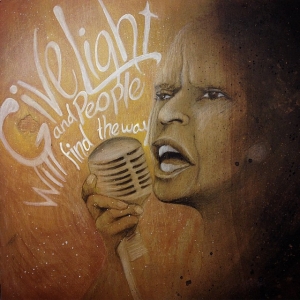Hold My Beer No More
The America We’re Losing
I have a fond memory of dropping my barely school-aged child off with a friend for babysitting. My friend, Simone, took my daughter’s hand and said “You’re going to learn the right way to misuse a roman candle!” I held up my hands, and shouted “ten!” to indicate how many fingers I wanted my child to have when I picked her up. Simone waved me away while she whisked my child off to learn about using small explosives in creative ways.

The classic, very us, meme
My child grew up in a community of lovable dorks, weirdos, hackers, and burners. I grew up in the kind of family were we shot beer cans off fences. We did unwise things with cars that got rebuilt in a driveway, which no shock absorber in the universe could hope to cushion. We were very much a ‘hold my beer’ family, and we had the scars to prove it. But more important, we had the stories.
These stories are part of being American; they can even sometimes rise above the violent cut lines of our fractured society. Black, white, native, Afghan, Chinese, whatever, we all bring our stories, we tell them loudly and lovingly to each other, across generations, neighborhoods, and communities. Sometimes we tell them laughing, crying, or both.
Americans love a good story so much we will go out and make them, even if it costs a fingertip, or a bit of foot. It absolutely gets out of hand. We regret it sometimes. You can’t always stop before you’ve gone a bit too far. This is also why so many great American stories are about apologizing.
“Hold my beer” is what you say to your cousin on the raft right before you try shooting the fish that haven’t been taking the bait. It’s what you say right before you try to grab an alligator by the snout, because you saw someone do it on YouTube. It’s what comes right before you cliff jump into a pond, get on an improvised zip line, or try cocaine for the first time.
You can call us stupid, because we definitely are. But nobody denied that Americans were fun. When an American says hold my beer, someone inevitably reaches over to take it, and steps back to observe the mayhem from a safe(r) distance. We may end up with scars, but we’ll get a story to go with them.
But that fun, that’s getting complicated in these, the waning days of the American spirit.
In the last few decades the very American desire to have some fun ran smack-dab into the carceral state, the cost of healthcare, and now, the rise of fascism. It has been all part of a long slow slide into not at all fun things. It’s continuously squeezing the whimsy out of being American. It is starting to hurt, really hurt, and not in a way that’s fun to tell people about later.
Americans were always known to be a little stupid about the rest of the world, but mostly that’s because the world is so far away. It’s a very big country with two very distant borders for most of the people. I now live on a continent where I have gone on a hike and accidentally crossed an international border. The frame of reference is different enough that it’s hard for Americans to understand the lives of others, but equally it’s hard for others to understand the lives of Americans.
There’s not much to tell us when we’re moving the wrong way, we struggle with out a larger frame of reference. Americans can’t imagine a healthcare system that just works, and almost no one else can imagine one that works as terribly as ours does.
I’ve traveled all over this lovely little blue marble, and when I tell people I’m American, they so often say the same thing: We hate the American government. But the Americans themselves? Americans are OK. Some Americans are great, one is even Snoop Dogg! (Everyone loves Snoop.)
When I assure them that I also hate the American government, and I’ve had to deal with it a lot more than they have, we all high five and go get drinks together.
Whatever people have thought about the USA, Americans were always considered fun, even when we were still kind of English. We’ve been the good time people since before we were a country. Our reputation for partying was global before globalization.
In the 17th to 19th centuries, whaling ships that sailed out of Boston and other east coast ports would head out for years at a time, running around the world doing what we didn’t know at the time was a very bad deed – killing and harvesting whales. When American ships would pull up to cities anywhere around the world for some shore leave, it was Party Time. We bought the drinks, danced, sang, got in fights, and demanded mainly that everyone have a a good time, often on our shilling, or dollar, or whatever.
In writer and museum educator SJ Costello’s description, “The business of whaleships was welcome in such ports because the economies became so linked to their presence, but the whalers themselves could cause havoc in the few days they occupied the land. This was largely due to the dynamics of the crew and the lifestyle aboard: a bunch of young 18, 19, 20-something year-old men are let loose for a few days liberty after months on an often heavily-disciplined ship. Many of them have the twin goals of get drunk, have sex.”
We were memorable visitors.
The Americans would buy a few rounds, and come up with terrible ideas. The sailors of the whaling ships were the good time guys of the 17th to 19th century, and that set a lot of the tone for how people saw America and Americans in the early days of the nation. Partying sailors never impressed the good and great of any nation, but rarely did anyone turn down an American good time. And we never stopped being hold-my-beer crazy.
We eventually stopped whaling, but we didn’t stop the fun. We moved our fun into many things, but maybe most importantly, media and technology.
From the 20th to the 21st century, we made radio big, then TV, and finally Marvel movies. We even accidentally the memes when we made a whole internet. We’re not always the world’s favorite people, but that’s true for us, too. We’ve even made plenty of self-critical media. Take the Fallout franchise — it’s a classic example of the fact that even when we go hard on ourselves, were truly self-critical, we were still fun.
We’ve never really lost our reputation of bringing a good time. We’re adventurous and unguarded. We’re stupid and oblivious. Even when we’re trying to be guarded and sneaky, we just don’t manage it the way a Russian or a Chilean can. Eventually we just say something loud, weird, or funny, and blow our cover. We are the world’s goofy motherfuckers.
But this is changing now. And if we’re honest, it’s been changing for a while.
It’s harder to have some fun. The police seem to be everywhere, news reports about ICE are daily. Be careful, we tell each other. We say this because we care for each other. We say this, even though we know it is giving ground to the enemies of fun; and maybe our freedom, maybe even our human dignity.
The police are increasingly secret. They have gone from faces and badge numbers you could write down to body armor, camo, and masking. Sometimes they bare no markings beyond their air of malice, gaiter covered faces, sunglasses, and of course, their guns. This isn’t to protect them, they’re not really in much danger. It’s to install police in our minds as well as on our streets.
You never know who might be looking these days. You never know who might take your picture and put it online.
I wanted to believe that authoritarianism is antithetical to the American character, but not because we’re freedom loving. All people love being free, just as all people love their communities and children. All people want to live in a system of justice, peace, and hope.
No, the way in which I hoped we were incompatible with fascism is that I believed that Americans were just too goofy to be ruled that way. We do crazy shit to see what happens. We just aren’t self preserving enough to obey in advance.
We point roman candles at each other, giggling, even though our health insurance sucks. We do things just to see if they hurt. We do things to see how much they hurt. We do things that hurt just so we can tell the story of when we did that thing, and how much it hurt.
But maybe it turned out some things just hurt too much. Or they hurt too deep.
It’s changing now. Sometimes people just disappear. So many of us are obeying in advance, pointing out the vulnerable, telling the police about our neighbors.
And the others, those neighbors, the ones who may be unwanted, they’re hiding. They don’t go out much. Some of them don’t go to work anymore. Some assure their friends they can work at home, so they’ll be OK. Don’t worry, they won’t answer the door. Some of our friends don’t leave the house anymore at all. They’re scared, maybe because they’re vulnerable to ICE raids or because they don’t “look American” enough.
Or sometimes they’re not scared, just realistic. Just adapting to the slow and steady unpersoning of everyone Trump doesn’t like, who isn’t white enough, servile enough.
We might still be up for fighting the po-po in Downtown LA, but can we really keep it up? Will they take us away, one by one, put us in some camp, and no one will ever hear from us again?
Will anyone go looking?
Even the Trump supporters are trapped in their support. They can’t question or criticize anything without risking losing their standing, maybe their livelihood. For the rest of us, it’s worse. What happens if we try to cross the border, in or out? Will we be harassed? Will our devices be taken, our online lives rifled through like an underwear drawer?
Will some social media rant against the Trump administration be put down on a table in front of us by men with guns?
We look at each other differently. Any of these white roughneck men could be police, or their sympathizers.. The police could come from anywhere, and steal my friends, my neighbors, my family, away. We hear about Kilmar Abrego Garcia sometimes, but almost nothing of the hundreds who flew with him to El Salvador, in defiance of a legal court order.
We only hear of the vanished when a court case says they shouldn’t have been sent to South Sudan. How many Americans can find South Sudan on a map? We only carry the weight of these souls in their absence, but they are getting heavier every day. The law is for you, not for the rulers. Not for Trump.
Fascism always burdens the guilt of living for the not yet dead. It carries the fear of joy for anyone outside of the circle of the followers. And what they have is not joy – it’s gleeful cruelty, and it must be maintained at all costs. Don’t doubt. Keep your head down. Your favorite color will always be gray, whatever name they’re giving gray this week.
In a way, the most universal right we’re losing under the Trump regime is the right to be different, to be weird, to be ourselves, to be from somewhere, to not fit in, to be stupid, to make stories about the times we did those crazy things. To hand someone our beer and be a glorious American idiot. Maybe we need to be scared because we’re foreign, or gay, or need help in some way. Nobody can be sure they’re safely inside the circle of the authoritarian’s allowance all the time.
Hold my beer no more, America. We have murdered fun, and we will no longer be foolish and brave. Wondering why your neighbors disappeared isn’t fun. I keep wondering if I write the wrong thing, will someone (possibly even me), get hurt? The fun that binds up all our cares, our stories, our bold hope, we have traded it for a small and guilty existence, full of worry and what will our neighbors think of us? Will they report us?
It becomes a torrent, hard to hold in one’s head. Will we allow it all to happen, and worse, again? And again? The kids in cages, families destroyed by the Trumpian violence. The Salvadorian mega prison, but also all the overloaded prison camps full of who knows who, or even where. Some in southern Florida, Texas, filled and more than filled, waiting on a hurricane season NOAA can’t track like it used to.
Will they ever come home? Will their mothers look for their bones one day? Will the ones that didn’t speak up deny it happened? Just refuse to talk about it?
Will we become timid people?
I wonder who is allowed to have fun in America now. But also, who is required to look like they’re having fun.































